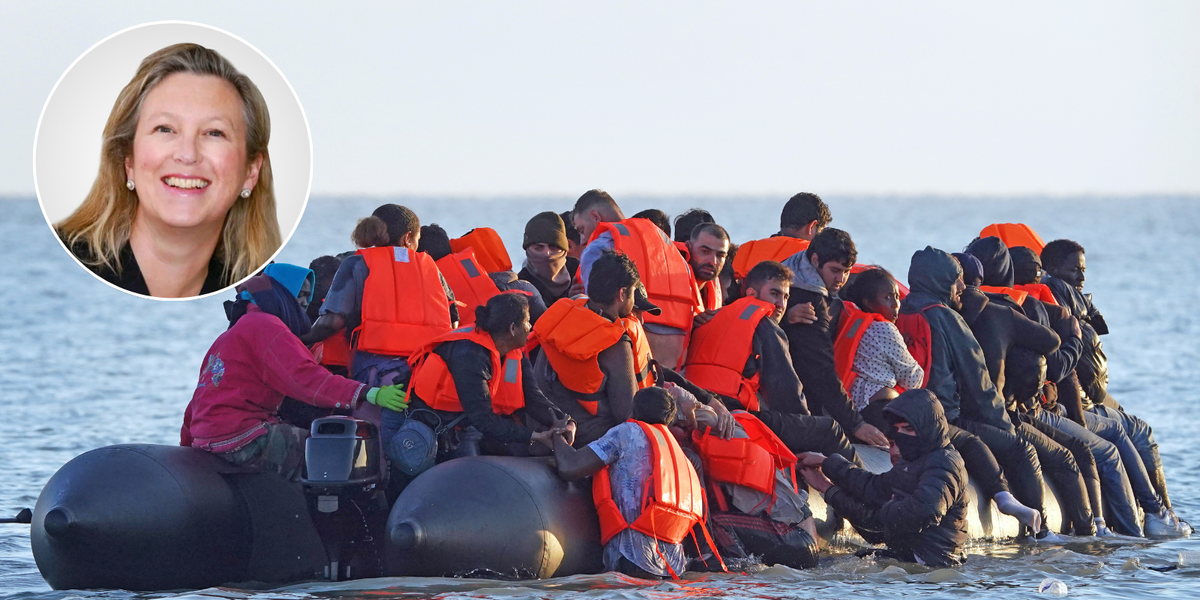Mass migration has become an existential crisis for the European Union, and its failure to address it effectively is a testament to a system in chaos.
The uncontrolled influx of migrants has overwhelmed asylum systems, exposed the cracks in burden-sharing between nations, and triggered deep social, economic, and political divisions. For too long, Europe’s leaders have dismissed the dangers of mass migration, naively viewing it as a moral imperative, while ignoring the harsh reality unfolding across the continent.
The EU’s inability to grip this unfolding catastrophe has fuelled the rise of populist and far-right parties, a direct response to the incompetence of left-wing leaders who are out of touch with the real concerns of their citizens. Europeans are fed up with being dictated to by bureaucratic elites who disregard the profound demographic shifts altering the very fabric of their societies.
Cultural integration is in free fall, with not just language barriers, but severe clashes in social norms and values. Worse still, the perception that migrants receive preferential treatment from politicians, police, and the courts has sparked outrage, undermined social cohesion, and led to violent tensions across Europe.
The lack of a coherent, unified strategy for managing migration has left EU countries scrambling, implementing hasty and reactionary policies in a desperate attempt to contain the fallout.
Germany, after its disastrous open-door policy, has now backpedalled, reinstating border controls that have ignited fierce controversy.
Meanwhile, Denmark has shown a far more sensible path, making asylum a temporary status, cutting the number of economic migrants under the guise of refugee claims.
Denmark’s pragmatic promise to return migrants to their countries of origin once they are deemed safe has not only drastically reduced illegal migration but also depoliticised the issue—something most EU nations have failed miserably to do.
The EU’s recent Asylum and Migration Pact is an attempt at damage control. It proposes speeding up asylum processes and establishing processing centres outside the EU – like the Conservative’s Rwanda scheme that Labour has cancelled – but it comes far too late and does little to address the core issues.
Worse, it fails to ensure fair burden-sharing between member states, allowing the most affected nations to bear the brunt while others skirt responsibility, and ignores the root causes of migration. This solution is nothing more than a temporary fix that will inevitably collapse under the weight of reality.
LATEST OPINION FROM MEMBERSHIP:
Decisive and robust action is now the only way forward. The UK, as a founding member of the Council of Europe, understands the gravity of the situation.
Established in 1949 in the aftermath of World War II to uphold human rights, democracy, and the rule of law, the Council provides a platform for Europe to cooperate on these issues.
Last year, at the Council of Europe summit in Reykjavik, former UK Prime Minister Rishi Sunak confronted European leaders, demanding that the issue of mass migration be treated as a European-wide emergency, not a national one.
Together with heads of European states and institutions, Sunak pushed for immediate, coordinated action to avert the growing humanitarian disaster that unchecked illegal migration threatens to unleash across the continent.
This crisis will not solve itself, and it will not be resolved with half-hearted measures. Europe needs to wake up. Responsible and bold immigration policies that prioritise the rule of law, demand transparent procedures, and treat migrants fairly but firmly must be implemented.
Without this, Europe’s social fabric will continue to tear apart, and the chaos will only grow. The time for dithering is over—Europe must act decisively, restore order, and turn this crisis into an opportunity before it’s too late.
